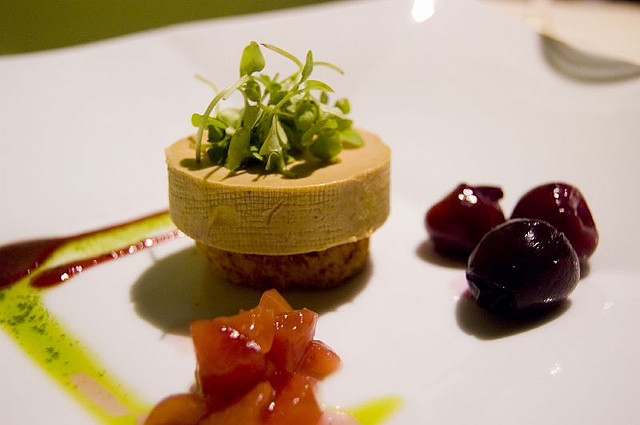
Not that you've been eating it, but you still can't: A federal appeals court in San Francisco today refused to block California's ban on foie gras.
A panel of the 9th U.S. Circuit Court of Appeals upheld a decision by a federal trial judge in Los Angeles to decline to grant a preliminary injunction halting enforcement of the law.
The measure, which went into effect on July 1, 2012, bans the sale within California of what some consider a delicacy, made from the livers of force-fed ducks. (In the last stages of feeding, ducks raised to produce foie gras are force-fed through a tube inserted into the base of their esophagus.)
In 2004, then state Senate President Pro Tem John Burton championed the bill in the State Legislature. He told KQED shortly before the measure took effect, "I don’t know why chefs can’t make something that tastes like foie gras that doesn’t mean they have to torture birds to do it.”
The law was challenged by foie gras producers based in the Canadian province of Quebec and the Hudson Valley of New York and by a Southern California restaurant chain.